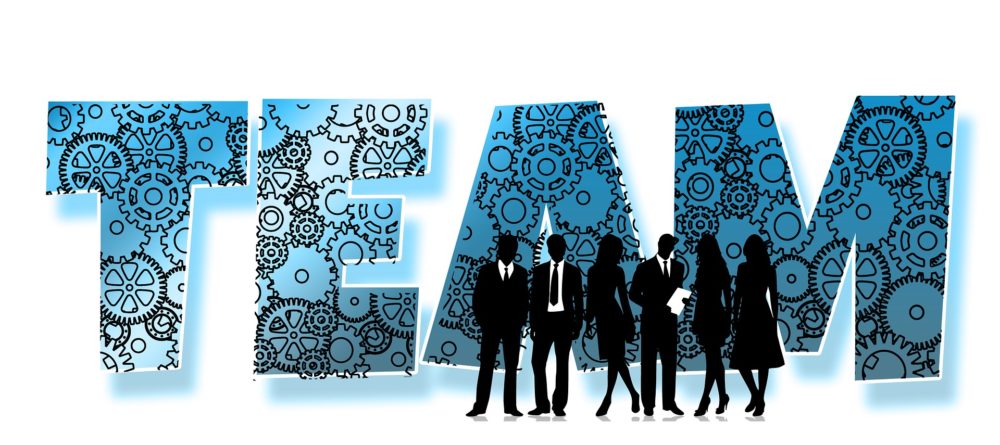Top 10 McKinsey Features
〜consulting firms〜

1. Prestige

McKinsey is the world leader in consulting prestige: $8.8B in 2016 revenue and 26,000 headcount; founded in Chicago in 1926, the firm is now based in New York and has over 120 offices. Consistently ranked #1 as the most respected brand in the consulting industry, the firm is associated with a cutting-edge strategic approach.
McKinsey & Company is widely considered to be one of the most prestigious and well-respected consulting firms in the world. The firm’s reputation for excellence and expertise has been built over many decades, and it is often associated with rigorous, analytical problem-solving and the ability to attract and retain top talent from around the world.
Several factors contribute to McKinsey’s prestige. The firm’s rigorous selection process for its consultants, which is highly selective, is one of the most significant factors. McKinsey is known for hiring top talent from the best universities, and its consultants are often considered to be among the brightest and most capable in the industry.
McKinsey’s reputation is also built on its ability to deliver high-quality consulting services to its clients. The firm is known for its analytical and data-driven approach to problem-solving, which helps its clients make better decisions. Additionally, the firm’s reputation is built on its ability to provide its clients with a wide range of services across different industries, including strategy, corporate finance, and operations management, among others.
The firm’s work is mostly confidential, but it is known that McKinsey works with major corporations, governments, and non-profit organizations across a wide range of industries. This has helped to establish the firm as a trusted advisor to some of the most influential organizations in the world, which in turn has helped to enhance its prestige.
Finally, McKinsey’s commitment to social impact and sustainability is another factor that contributes to its prestige. The firm’s work on issues such as education, healthcare, and economic development has helped to establish it as a leader in the industry, not just in terms of delivering business results but also in terms of creating positive social impact.
2. Work-Life Balance

McKinsey employees enjoy excellent learning and networking opportunities. However, it tends to be an intense lifestyle with frequent travel, lots of face-to-face work, and consequently long hours. If you are interested in a career that requires a lot of travel, this may be a good place to work.
McKinsey & Company, like many other consulting firms, is known for its demanding work schedule and intense work culture. Consultants at the firm are often expected to work long hours, travel frequently, and be available to clients at all times. This can make it challenging to maintain a healthy work-life balance.
However, McKinsey has made efforts to improve work-life balance for its consultants in recent years. The firm has implemented several policies and initiatives aimed at improving the well-being of its employees, including offering flexible working arrangements, such as part-time and remote work options. McKinsey also encourages its consultants to take time off and encourages them to make use of their vacation time.
Additionally, the firm has a “people and culture” team dedicated to promoting well-being among its employees. This team organizes events and initiatives to promote physical and mental health, such as yoga classes and stress-management workshops. McKinsey also offers an Employee Assistance Program (EAP) that provides confidential counseling services to help employees with personal and professional challenges.
While McKinsey has made efforts to improve work-life balance, it is still a demanding and intense work environment, and it can be challenging to maintain a healthy work-life balance. However, the firm has been making changes and implementing policies to support its employees and improve the well-being of its consultants.
3. Employee Satisfaction

McKinsey is widely known as one of the best options for a high-powered career. Because of its competitive atmosphere, turnover among young consultants can be high. However, great opportunities are offered to those who persevere and keep working.
McKinsey & Company is known for being a prestigious and well-respected consulting firm, and it is often considered one of the best places to work in the consulting industry. However, the firm’s intense work culture and demanding schedule can make it challenging for employees to maintain a healthy work-life balance.
Employee satisfaction at McKinsey varies depending on the employee, their role, and their personal circumstances. Many consultants find the work challenging and stimulating, and they enjoy the opportunity to work on high-profile projects and solve complex problems. The firm’s rigorous selection process and the high caliber of its colleagues can also be a source of pride.
However, some employees may find the long hours and heavy travel schedule to be a source of stress and may struggle to maintain a healthy work-life balance. Additionally, some employees may find the intense and competitive work environment to be a source of dissatisfaction.
Overall, McKinsey has been making changes and implementing policies to support its employees and improve their well-being, such as offering flexible working arrangements, encouraging time off and promoting physical and mental health. These changes may have improved the employee’s satisfaction rate, but it is hard to know for sure as the firm is known for its discretion and doesn’t disclose specific information about employee satisfaction.
4. Corporate Culture

McKinsey’s culture is truly “competitive. Intellectual rigor and fact-based analytical skills are essential to success, and an optimistic outlook is required. Feedback is frequent and expected throughout the organization.
McKinsey & Company is known for its intense and demanding work culture, which is characterized by long hours, heavy travel, and a focus on delivering results for clients. The firm’s corporate culture is built on a set of core values, including a commitment to excellence, integrity, and teamwork.
One of the defining characteristics of McKinsey’s corporate culture is its focus on rigorous and analytical problem-solving. The firm is known for its data-driven approach and its ability to provide clients with high-quality, actionable advice. This approach is reflected in the firm’s training programs and the way it approaches its work.
McKinsey is also known for its highly selective hiring process, which helps to attract and retain top talent from the best universities and business schools. The firm’s culture is built on a sense of intellectual curiosity and a desire to constantly learn and improve.
The firm’s culture is also built on a strong sense of teamwork and collaboration. Consultants are expected to work closely with colleagues across different teams and offices, and the firm places a strong emphasis on knowledge sharing and mentoring.
Despite its intense work culture, McKinsey has been making efforts to improve work-life balance for its employees and promote well-being. The firm has implemented several policies and initiatives aimed at improving the well-being of its employees, such as offering flexible working arrangements, encouraging time off, and promoting physical and mental health.
However, it’s worth noting that the culture of a consulting firm is not a fixed thing, it can change over time, and it may vary depending on the office, the team, or the project. It’s important to understand that the culture of a consulting firm is not the same for everyone, and the experience of each employee is different.
5. Diversity

At McKinsey, diversity is somewhat of an influence, as preference is given to those from prestigious universities such as Oxford, Harvard, Stanford, and Yale. Many of our seniors also started their careers at firms such as Goldman Sachs and Procter & Gamble.
McKinsey & Company, like many other consulting firms, has faced criticism for its lack of diversity, particularly with respect to race and gender. The firm has acknowledged that it needs to improve in this area and has made a commitment to increasing diversity and inclusion within the company.
McKinsey has implemented several initiatives to increase diversity and inclusion within the firm. These include:
- Setting diversity and inclusion targets for hiring, retention and promotion
- Offering unconscious bias training to employees
- Investing in programs to support underrepresented groups such as women and people of color
- Partnering with organizations that focus on diversity and inclusion
In addition, McKinsey has also made efforts to improve representation and advancement of underrepresented groups in leadership roles, such as increasing the number of women and people of color in partner roles.
However, despite these efforts, the consulting industry still faces challenges in terms of diversity and inclusion, and McKinsey is no exception. The firm still has a long way to go to improve representation of underrepresented groups within the company. McKinsey has been transparent about the progress it has made and the challenges it still faces, and it continues to take steps to improve diversity and inclusion within the firm.
McKinsey’s commitment to diversity and inclusion is ongoing, and it is important to note that the consulting industry is constantly evolving. It’s important to check with the company for the most up-to-date information on their efforts and progress.
6. Career Growth

Consultants typically spend two to three years in their career, working in six roles ranging from business analyst to partner. Semi-annual evaluations focus on areas such as thought leadership, client leadership, and people leadership.
McKinsey & Company is known for its rigorous and analytical approach to problem-solving, and its focus on attracting and retaining top talent. The firm’s culture is built on a sense of intellectual curiosity and a desire to constantly learn and improve. As a result, the firm is often considered to be a great place to grow a career in consulting.
McKinsey’s career growth opportunities are extensive, and the firm offers a wide range of roles to its employees, including:
- Consultant: Entry-level position where employees work on client projects and develop their problem-solving and analytical skills.
- Engagement Manager: Senior consultant who leads teams on client projects, manages relationships with clients and is responsible for delivering results.
- Practice Area Expert: Senior consultant who specializes in a specific industry or functional area and provides clients with expert advice.
- Principal: Senior manager who leads teams and practices, and is responsible for the firm’s overall performance in a specific area.
- Partner: The highest level of leadership in the firm, partners are responsible for leading the firm’s overall strategy and growth.
McKinsey also offers a wide range of internal mobility opportunities, which allows employees to move between different offices and practices, and gain a diverse set of experiences. The firm also encourages continuous learning and development, and it offers various training programs and development opportunities to its employees.
Despite its reputation as a great place to grow a career, it’s worth noting that the consulting industry is demanding and intense, and the work at McKinsey can be challenging. In addition, the promotion process at McKinsey is known to be rigorous, and it can take time to advance to higher levels within the firm.
7. The early days

In 1926, James O. McKinsey founded his firm to provide financial and accounting advice to local businesses. He soon realized that he could make better business decisions by interpreting his clients’ financial data. This innovation is said to have inspired McKinsey to utilize consultants, or “management technicians,” for the first time. Although the company name McKinsey is his, it is said that it was one of his students, Marvin Bower, who set the direction for McKinsey.Bower is known as the man who shaped McKinsey’s corporate culture, particularly its three codes of conduct, which set forth the ideals that consultants should adhere to, and which are still followed today. Bower, who joined the firm in 1933 and later served as managing director, was the first to articulate a consultant’s duty to insist on what he believed to be right. He was the first to clearly state that he would insist on what he believed to be right.
McKinsey & Company was founded in 1926 by James McKinsey, an accounting professor and consultant, who opened the first office in Chicago. In the early days, the firm focused on providing financial and accounting advice to businesses. The firm’s early clients were mostly small and medium-sized companies in the Midwest, and the primary services offered were cost accounting and financial analysis.
In the 1930s, the firm expanded its services to include general management consulting and began to work with larger clients. The firm’s reputation grew, and it began to attract clients from a wide range of industries, including manufacturing, retail, and transportation.
During World War II, many of McKinsey’s consultants were called to serve in the military, and the firm’s activities were temporarily suspended. However, after the war, the firm’s reputation had grown, and it was able to attract a new generation of talented consultants.
In the 1950s, the firm began to expand internationally, opening its first international office in London in 1959. This marked the beginning of the firm’s global expansion, and it continued to open offices around the world, including in Asia and Latin America.
In the 1960s, McKinsey began to focus on developing its own methodology and approach to consulting, which helped to establish the firm as a leader in the industry. The firm’s reputation continued to grow, and it began to attract some of the most influential and powerful clients in the world.
Today, McKinsey & Company is considered to be one of the top consulting firms in the world, known for its expertise in strategy consulting and data-driven decision making. The firm has a strong global presence and a reputation for delivering high-quality consulting services.
8. Degrees of success

McKinsey’s historical reputation as the employer of choice for MBAs, with its concentration on MBA students fresh out of top schools, remains, but it does not reflect the reality of the company’s contemporary composition. MBA graduates no longer want to work for McKinsey but rather because McKinsey is looking for the best and the brightest and they want to work at McKinsey regardless of where they are located. McKinsey has just as many JDs, MDs, and PhDs working at McKinsey as it does BSs and undergrads. As clients’ needs change, McKinsey is hiring more specialized and experienced people, such as change management professionals and people with digital design and development experience.McKinsey employees are more likely than average to make a career change, regardless of tenure. In addition, more than 500 alumni are leading billion-dollar companies around the world, including 50 in leadership positions in public sector and social sector equivalent organizations.
McKinsey & Company is widely considered to be one of the most successful and prestigious consulting firms in the world. The firm’s success is built on several factors, including its rigorous and analytical approach to problem-solving, its ability to attract and retain top talent, and its commitment to delivering high-quality services to its clients.
One of the key factors contributing to McKinsey’s success is its rigorous and analytical approach to problem-solving. The firm is known for its data-driven approach and its ability to provide clients with high-quality, actionable advice. This approach is reflected in the firm’s training programs and the way it approaches its work, and it helps the firm to deliver results for its clients.
Another key factor in McKinsey’s success is its ability to attract and retain top talent from the best universities and business schools. The firm’s culture is built on a sense of intellectual curiosity and a desire to constantly learn and improve, which helps to attract and retain the best consultants in the industry. This, in turn, helps the firm to deliver high-quality services to its clients.
McKinsey’s commitment to social impact and sustainability is also a factor in its success. The firm’s work on issues such as education, healthcare, and economic development has helped to establish it as a leader in the industry and not just in terms of delivering business results but also in terms of creating positive social impact.
Finally, the firm’s reputation and brand are also key factors in its success. McKinsey’s reputation for excellence and integrity is well established, and it is often considered a trusted advisor to some of the most influential organizations in the world. This reputation has helped to establish the firm as one of the top consulting firms in the industry.
9. One-firm partnership

As a single global firm, McKinsey has no headquarters. Instead, the firm employs a “one-firm” partnership model, in which offices around the world share values and cultural norms. This allows the firm to assemble teams of professionals in a way that best suits the client. Consultants are assigned to a particular office and immediately form a local community and work with colleagues in other locations. They may also work with colleagues in other locations.
McKinsey & Company operates under a “one-firm” partnership model, which means that all of the firm’s offices and practices around the world are closely connected and operate as one firm. This model is designed to promote collaboration, knowledge sharing, and a sense of common purpose across the firm.
The one-firm partnership model is intended to help McKinsey deliver the best possible service to its clients by allowing the firm to draw on the expertise and resources of its global network of offices. For example, consultants in one office can work with colleagues in other offices to provide clients with a more comprehensive and integrated service.
The one-firm partnership model also helps to promote collaboration and knowledge sharing within the firm, which is crucial to McKinsey’s success. The firm encourages its employees to share knowledge and best practices across offices and practices, which helps to promote learning and development within the firm.
Additionally, the one-firm partnership model is intended to promote a sense of common purpose and culture across the firm. The firm has a set of core values and a culture that is intended to be shared across all of its offices and practices, which helps to promote consistency in the way the firm operates.
Overall, the one-firm partnership model is a key aspect of McKinsey’s business model and culture, which is intended to promote collaboration, knowledge sharing, and a sense of common purpose across the firm, which helps the firm to deliver the best possible service to its clients.
10. Social betterment

Firms emphasize social impact and use their intellectual, financial, and convening power to help solve problems such as disease, poverty, climate change, and natural disasters. The firm actively invests resources in education and other research activities, as well as pro bono and volunteer work. We recently published a report on social responsibility that summarizes some of the activities we undertake to have a greater impact on society.We are also investing in a better understanding of resource productivity issues, including carbon reduction.As of 2018, McKinsey is carbon neutral and has achieved the status of “Climate Neutral Company” as certified by SouthPole.Through the McKinsey Global Institute (MGI), the firm publishes research on pressing socioeconomic issues and hopes to contribute to building a better society by providing business leaders and politicians with the knowledge they need to make sound decisions.
McKinsey & Company has a long-standing commitment to social betterment, which is reflected in its work with clients and its internal initiatives. The firm has a dedicated social impact practice that works with governments, non-profits and other organizations to address social and environmental issues.
McKinsey’s social impact work is focused on several areas, including:
- Education: working with governments and non-profits to improve educational outcomes for students in low-income communities.
- Healthcare: working with healthcare providers and payers to improve access to quality healthcare for underserved communities.
- Economic development: working with governments and organizations to promote economic growth and reduce poverty.
- Environmental sustainability: working with companies and organizations to promote sustainable practices and reduce the environmental impact of their operations.
In addition to its social impact practice, McKinsey also has a corporate responsibility program which focuses on the following areas:
- Community service: encouraging employees to volunteer and get involved in their local communities.
- Diversity and inclusion: promoting diversity and inclusion within the firm and in the communities where it operates.
- Environmental sustainability: reducing the environmental impact of the firm’s operations and promoting sustainable practices.
McKinsey also has a venture arm, McKinsey New Ventures, that invests in and partners with startups to bring new technologies and solutions to its clients.
Overall, McKinsey’s commitment to social betterment is a key aspect of the firm’s culture and values, and it is reflected in the firm’s work with clients and its internal initiatives. The firm’s social impact practice and corporate responsibility program are intended to help promote positive social and environmental change, while its venture arm is intended to support new technologies that can help create a better future.
<Related Articles>






